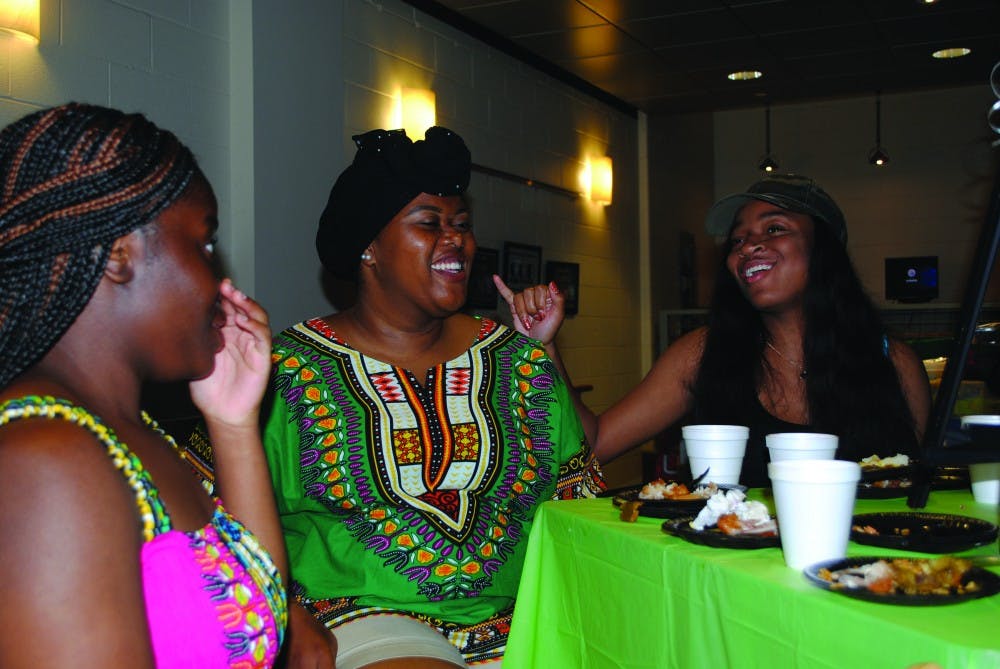Many members of the African Student Association (ASA) can answer Shakira’s question, “Tsamina mina zangalewa,”— where do you come from — with 54 different answers because of the 54 different countries in Africa.
The ASA held “Taste of Africa” last Wednesday to introduce new and old members not only to the club officers, but also to the culture of Africa.
ASA President Madeline Kwarteng is trying to bring a little bit of her culture to Shippensburg University. Kwarteng moved from Ghana in West Africa in 2001 and still misses her home where her extended family lives.
“I love my culture — the clothes, the music, the atmosphere and just how inviting everyone is,” Kwarteng said.
Africa is not just the poor dirt villages pictured on TV, she said — it is much more. There are places in Africa that look just like big cities in the U.S., but that is not always what people think of, Kwarteng said.
“That’s our main goal — to break that stereotype people have of Africa,” Kwarteng said.
At this first meeting, attendees certainly got a taste of Africa with the authentic dishes of plantains, jollof rice, fufu and okra soup.
Many of the dishes are the same across Africa but taste different depending on where they are made. People at the club meeting were asking if the rice was Nigerian rice or Ghana rice, Kwarteng said, because the people who are from Africa know there is a huge difference.
For a group activity, Kwarteng asked participants to write down all of the African countries they knew by memory. “Five? 10? 15?” Kwarteng asked as fewer and fewer hands remained raised.
Sophomore Aaron Cabello was able to write down 33 countries in the allotted time, but he boasted that he knew them all — and not just African countries, but every country in the world. When Cabello decided he wanted to be a geography major, he went to work memorizing the world map. He now knows every single country and its capital.
Cabello is not only prepared for his major but also for his plan to move to Africa after graduation to become a cartographer.
“I want to live there so I have to know everything about it,” Cabello said.
Cabello has mastered geography and knows a great deal of Africa’s history, but what he needs to work on most is learning the culture, he said.
In upcoming ASA meetings, Kwarteng said more of Africa’s culture will be featured — from learning about different countries’ flags to African dancing.
“We just want to give people a little introduction to what Africa has to offer,” Kwarteng said.




The Slate welcomes thoughtful discussion on all of our stories, but please keep comments civil and on-topic. Read our full guidelines here.